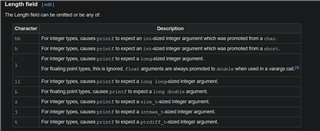Hi,
Currently, we work on a project that uses:
- nRF9160
- Zyphre OS
- Segger Embedded Studio for Arm (Nordic Edition) V5.10d
- SDK v1.4
- CONFIG_NEWLIB_LIBC=y
- CONFIG_NEWLIB_LIBC_FLOAT_PRINTF=y
- CONFIG_NEWLIB_LIBC_FLOAT_SCANF=y
We need to use "sscanf()" function whit length field specifier, here are some examples that we tried and it does not work and it is causing memory corruption in the consecutive variables.



